 Sign in
Sign in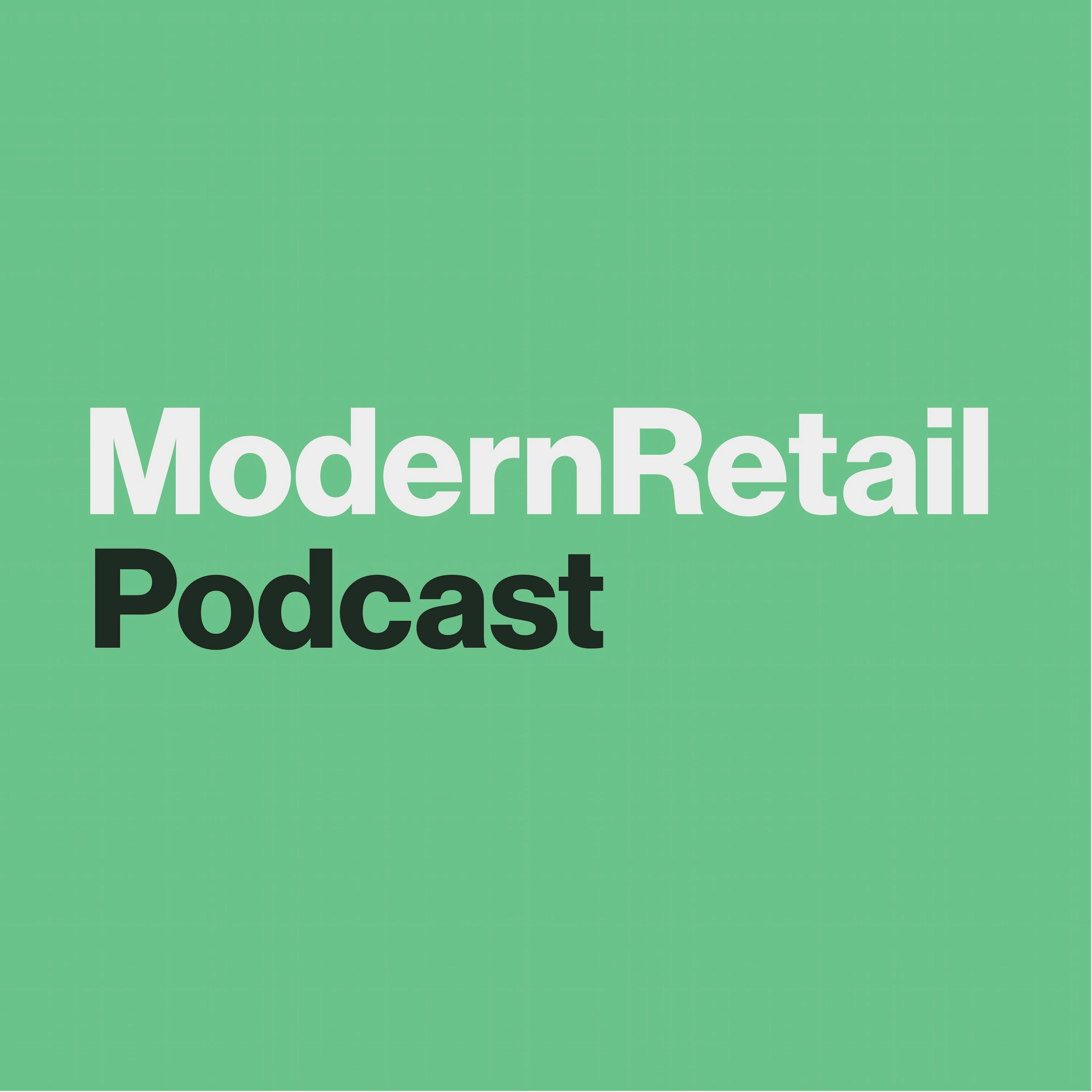
Business
News
Digiday
The Modern Retail Podcast is a podcast about the retail space, from legacy companies to the buzzy world of DTC startups. Every Thursday, Cale Weissman, editor of Modern Retail, interviews executives about their growth and marketing strategies. And every Saturday Gabi Barkho, senior reporter, sits down with the Modern Retail staff to chat about the latest headlines in the retail world.

Rundown: Under Armour attempts another turnaround, Shein's attempted NRF membership & Costco partners with Uber Eats
This week's Modern Retail Rundown kicks off with an abridged history of Under Armour’s plans to overhaul its business, which dates back as far as 2017. Meanwhile, Shein has reportedly attempted and failed to get into the National Retail Federation multiple times as it prepares to go public. Last, Costco and Uber Eats are teaming up to bring grocery delivery to people without a Costco membership.
29:4718/05/2024

How Cargo Crew has ridden the workwear wave with the help of Paris Hilton & Gwyneth Paltrow
Workwear has become high fashion, and Cargo Crew has spent the last two decades riding this wave.
The Australia-based company, which first launched in 2002, makes items like cooking aprons and boiler suits. Over the years, the company has expanded and grown -- Cargo Crew now works with 45,000 teams in over 80 countries and projects sales will grow 186% this year.
This growth is partly thanks to high-profile clients and fans like celebrity chef Curtis Stone, Goop and even Paris Hilton, who wore one of Cargo Crew's suits earlier this year. "I think the power of celebrity, whilst it's important here in Australia, it's even more important in the U.S.," said Cargo Crew's founder and chief creative officer Felicity Rodgers. She joined this week's Modern Retail Podcast and spoke about the two-decade-plus journey.
38:1316/05/2024

Rundown: Gopuff's cash burn, Equinox's new membership & Sweetgreen beef
On this week’s Modern Retail Rundown: The Information reported that Gopuff lost $400 million last year in its quest to grow revenue. Equinox launched a new health and wellness program that costs $40,000 a year and promises members lifelong health. Meanwhile, Sweetgreen has upset fans by getting rid of arugula the same week it introduced steak to its menu.
27:3811/05/2024

Movado Brand president Margot Grinberg on reintroducing a legacy watch company to younger shoppers
"Everyone said that millennials were never going to buy watches," said Margot Grinberg, president of the Movado Brand and svp of e-commerce at its parent company Movado Group. The going theory was: "They don't need them to tell time, they had a phone; watches were dead after the cell phone came out."
But that didn't happen. In fact, timepieces have never been more popular. According to a recent survey from the Boston Consulting Group, between 2021 and 2023, 54% of Gen Z and younger millennials increased their spending on luxury watches.
Grinberg joined the Modern Retail Podcast and spoke about the state of higher-end watches, as well as its evolving marketing playbook. For her, it's a family affair as her grandfather founded the company.
But even with its long history, Movado has been intently focused on attracting younger shoppers. Despite being over a century old, the watch brand -- which also works with top names like Coach, Tommy Hilfiger and Hugo Boss -- has been figuring out ways to introduce itself to younger shoppers. This has included a revamped logo, soon-to-be redesigned packaging as well as updated messaging.
While the products have remained relatively consistent, Grinberg said what makes shoppers -- especially younger shoppers -- more amenable to higher-end brands is in messaging. "I think in today's world, a lot of it is about marketing and how you're communicating to customers," she said.
The other part of the equation is being available on multiple channels. Movado's watches are sold in most any store that sells time pieces, but it's also available on marketplaces like Amazon as well as its own website.
"There are so many new elements that you can offer consumers from an e-commerce experience that we didn't even have five, 10 years ago," Grinberg said.
32:1009/05/2024
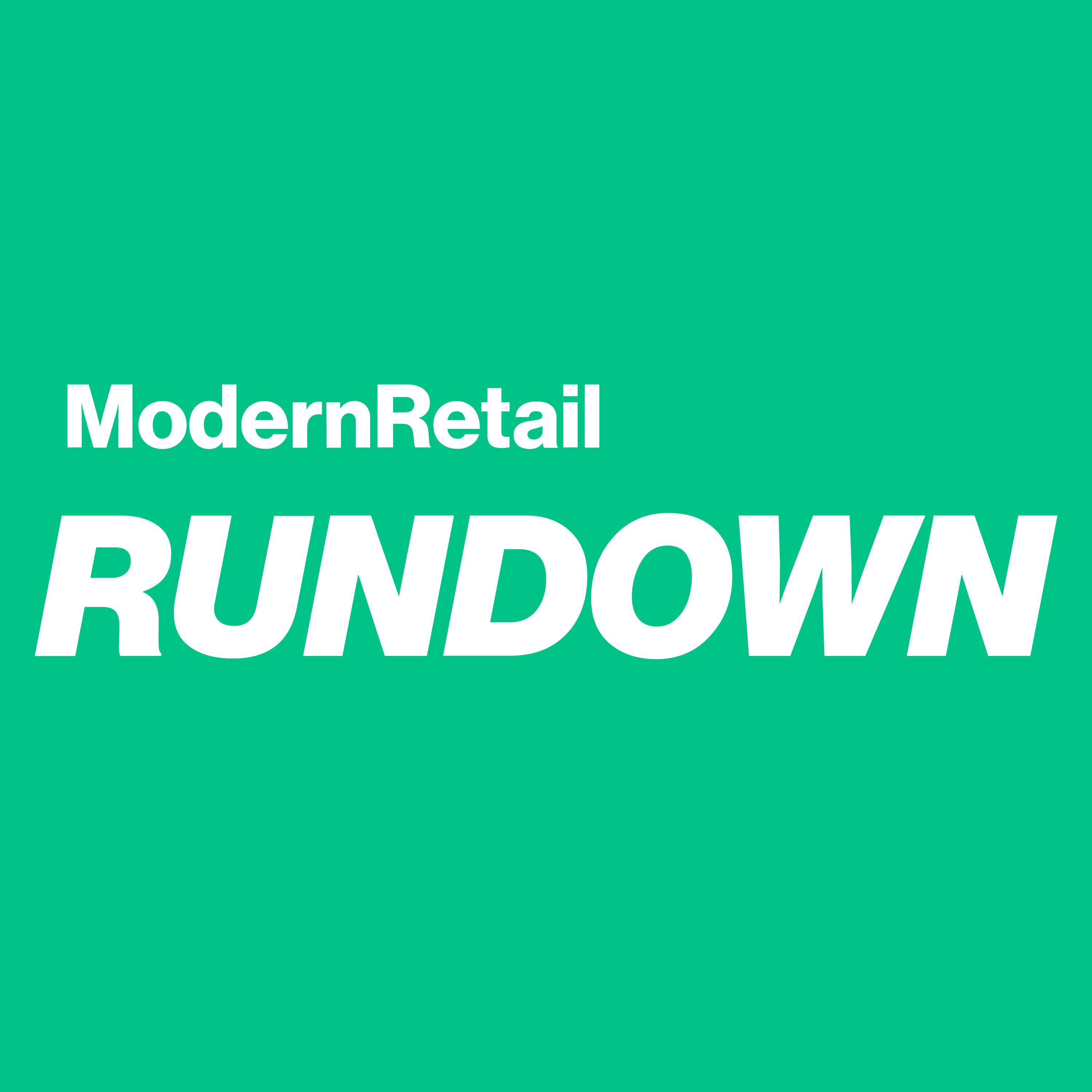
Rundown: Starbucks stores struggle, Walmart launches a new private label line & Dave & Buster’s bets on betting
On this week's Modern Retail Rundown: The show kicks off with a recap of Starbucks' latest earnings. The coffee shop chain cited bad weather, out-of-stock products and long wait times on app purchases as factors for a slight sales decline. Meanwhile, this week Walmart rolled out a new in-house brand called Bettergoods which features products like plant-based cheese, pistachio nut butter and trendy condiments. Meanwhile, arcade games destination Dave & Buster's said it's launching an in-app experience that will allow adults 18 years and older to place bets with real money.
28:1904/05/2024
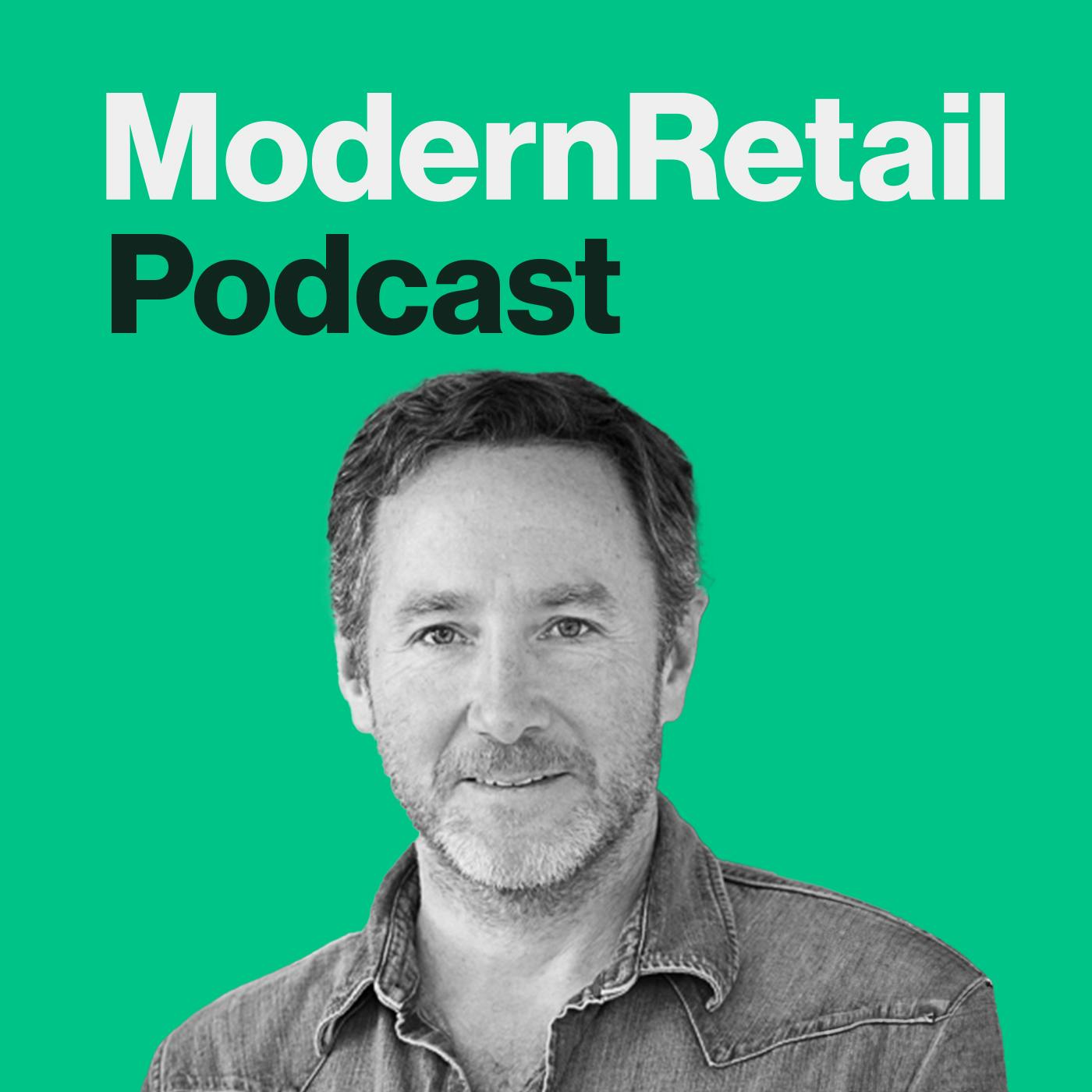
Former Peloton CEO John Foley on why he launched his rug startup Ernesta
John Foley may be best known as the founder and former CEO of Peloton, but it turns out interior design is his real passion.
"I've been passionate about rugs for decades," he said on the Modern Retail Podcast. "I love design, I love spaces."
This was all said to explain why he launched a rug company. Ernesta is a direct-to-consumer brand selling higher-end rugs. It launched in September of last year and just opened its first showroom in Manhattan last month.
"Now I'm addicted to you know those super high-end custom rugs," he said. "And we're trying to bring them now to both interior designers and to consumers at a price point that most people can't afford."
Ernesta is still in its early days, but Foley said the business is growing and gaining a name for itself. As he described it, the hope is for Ernesta to do for rugs what The Shade Store did for curtains. He even sees Ernesta's business model looking similar to it. "[The Shade store is] right around 50/50, selling to consumers and selling to trade. So we believe we're going to be right in that zone," he said.
Still, the company is very young and still has a lot of learning to do. The biggest lesson thus far is figuring out how best to tap the vast and opaque world of interior design. While customers can buy their rugs directly from its site or store, Foley is also hoping to becoming a trusted partner to designers and firms.
"My team and I come from the consumer world, and so we understand consumers a lot more than we understand interior designers and the trade," he said. "So we're learning our way into it."
Now, with the first store open, Ernesta is hoping to see how well it helps grow sales -- and eventually continue building the business from there. The company is also planning on launching an online platform for customers to share their own designs and interior layouts in the hopes of inspiring others.
"We're building this scaffolding -- this product experience community -- onto Ernesta, he said. "And I think in the next six to 12 months, that's going to come to life and be a really special part of the shopping experience."
38:1802/05/2024

Rundown: TikTok's impending U.S. ban, Saks goes into retail media & Amazon's grocery ambitions
On this week's Modern Retail Rundown: President Biden signed a bill that requires TikTok to either sell itself or face a U.S. ban. Next, the team discusses Saks' newly announced retail media network — and why it's a growing trend among retailers. Lastly, we dive into a new Amazon grocery subscription service that caters to low-income families.
31:4527/04/2024
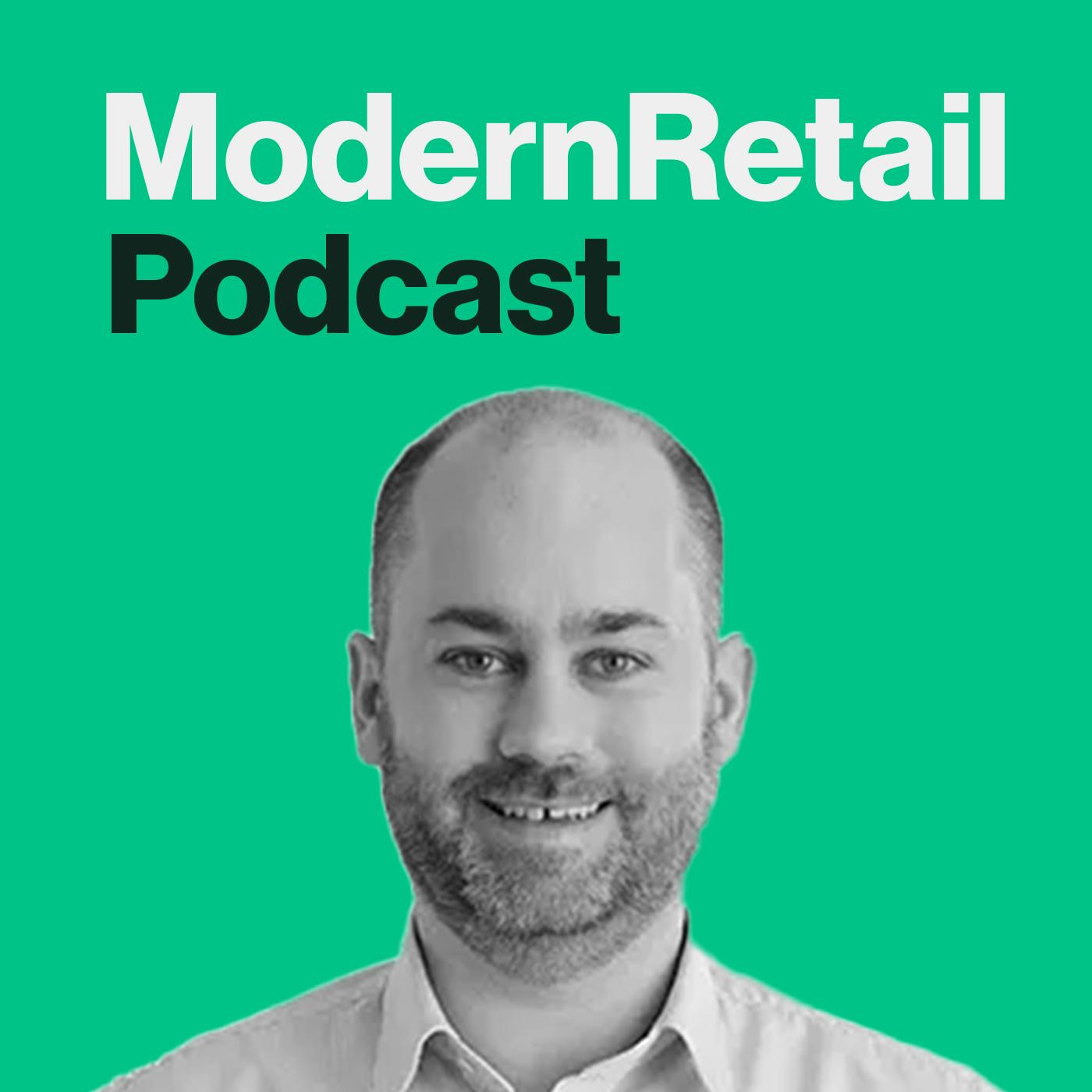
Prose CEO Arnaud Plas on growing a company with profitability in mind
Every brand talks about paths to profitability, but few actually reach it.
Customizable beauty brand Prose is one company that has bucked the trend and reached meaningful profitability. The company has made nearly $500 million since launching in 2018 and estimates it will bring in $160 million this year. What's more, this year the company is on track to be profitable, after hitting profitability last May as well for the entire third quarter of 2023.
At the Modern Retail Commerce Summit, held last week in New Orleans, Prose co-founder and CEO Arnaud Plas spoke about how he's been leading the company to reach these major milestones. "That has been a journey," Plas said.
Prose hasn't sacrificed growth in order to hit its profitability targets. For example, the company has expanded into new areas. "A major step with a spirit of reaching profitability [was] we launched skin care in 2023," Plas said.
While expanding into new categories is expensive, the thesis behind Prose was to build a vertically integrated and automated production system and then add more products to grow revenue. "The key was really: How do we automate production and customization?" Plas said.
By building out its own New York-based manufacturing, and figuring out how to automate parts of it, Prose was able to lower its production cost over the years while also charging a premium for offering customized products. It took many years, but Plas believed that if the brand could streamline its production enough while launching into new areas, the financials would work out.
"If we were able to execute this, there would be a pretty high and significant value creation for the company," he said.
But brands can't go all in on growth at once. And perhaps that's the biggest lesson from Prose's evolution so far. "The reality is that when you want to be profitable, you have to sequence your efforts," said Plas.
22:2025/04/2024
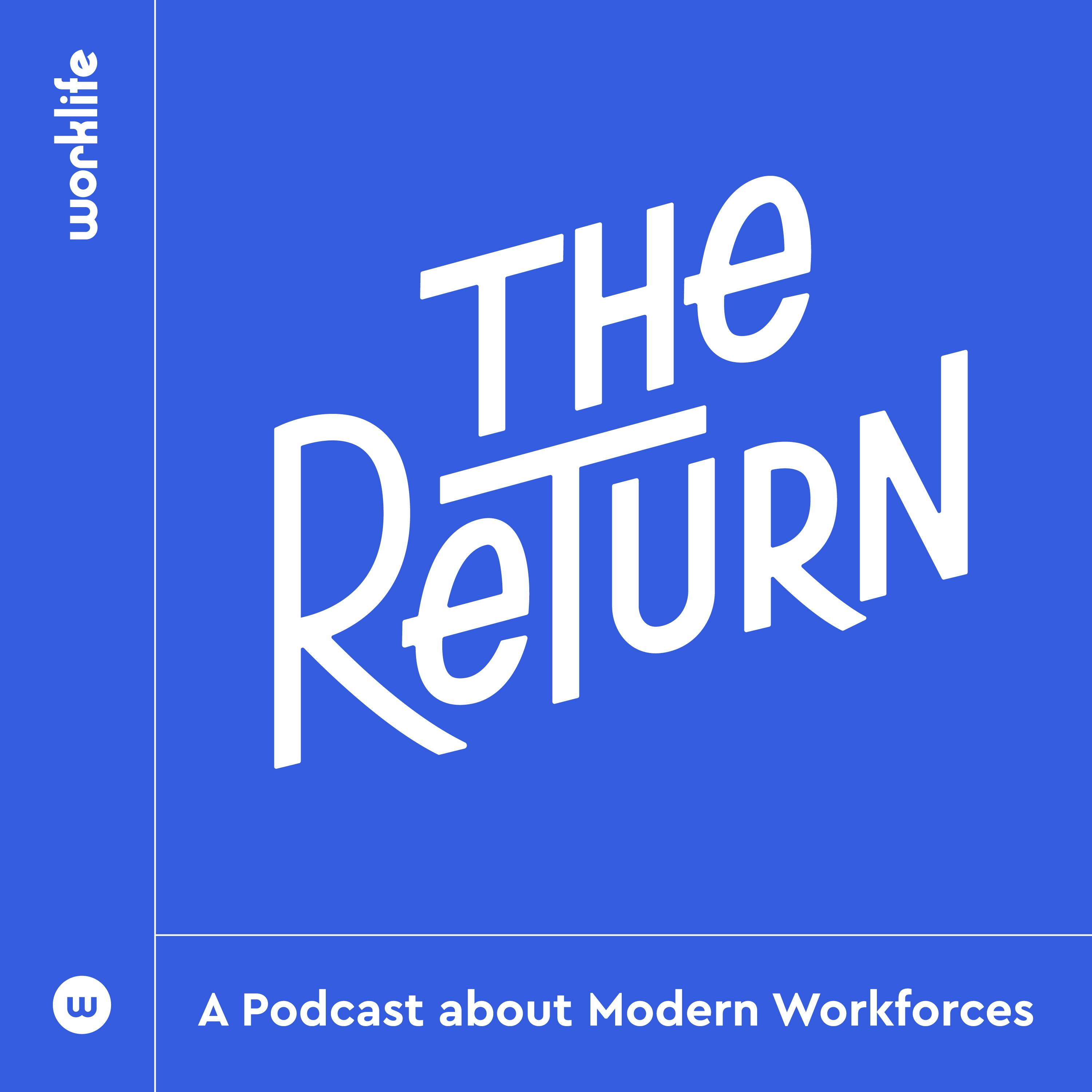
Digiday Media Presents: The Return Season Three
Digiday Media's WorkLife is proud to present season three of The Return, a podcast about the modern workforce, with this season focused on middle management.
Last season, we heard what it’s like for Gen Z to enter the workforce for the first time in a post-pandemic world. We highlighted themes like why values are so important to Gen Zers, whether or not they are loyal to their employers, how they use TikTok for career advice, what it means to be a young professional who is a boss to older workers, and so much more.
This time, we’re hearing from the population of workers that some argue is the backbone of a successfully-run organization: middle management. They are the ones who are navigating those RTO mandates, welcoming a new generation of workers that have a different approach than those who came before them, the rise of artificial intelligence – the list goes on.
In season three of The Return, we speak to middle managers themselves to hear beyond their everyday stresses of the job, but what they need to guarantee everyone they manage has what they need to be the best at what they do. C-suite, listen up because they need your help too.
We dive into how middle management stress is a decades-long issue (there are New York Times headlines dating back to 1971), how the wrong people are being chosen to be managers which is leading to the rise of “accidental managers,” what it’s like to have hard conversations and having to be a therapist at times, where people are finding support as a middle manager, and how AI is impacting the job of a middle manager.
With a Q+A format, you will hear in-depth conversations with folks including Colette Stallbaumer, Microsoft’s general manager of Microsoft 365 and Future of Work Marketing, Rob Pierre, former CEO of advertising services platform Jellyfish, and Emily Field, partner at McKinsey & Company who co-authored “Power to the Middle: Why Managers Hold the Keys to the Future of Work,” to name a few.
Season three of The Return is hosted by Cloey Callahan, senior reporter at Digiday Media’s WorkLife, and produced by Digiday Media’s audio producer Sara Patterson.
Subscribe to the WorkLife podcast now on Apple Podcasts – or wherever you get your podcasts – to hear the first episode on Tuesday, April 23.
03:2521/04/2024

Rundown: Peloton takes away free app workouts, adults help boost Lego's sales & Amazon's plans for just walk out tech
This week on the Modern Retail Rundown: After less than a year of relaunching its virtual workout app, Peloton quietly got rid of the free membership tier because it wasn't converting users into paying customers. Meanwhile, Lego's adult customer base continues to grow as adults buy up its newer intricate and more expensive sets. Finally, after doing away with its Just Walk Out technology at its own grocery stores, Amazon plans to sell it to other retailers.
29:2120/04/2024
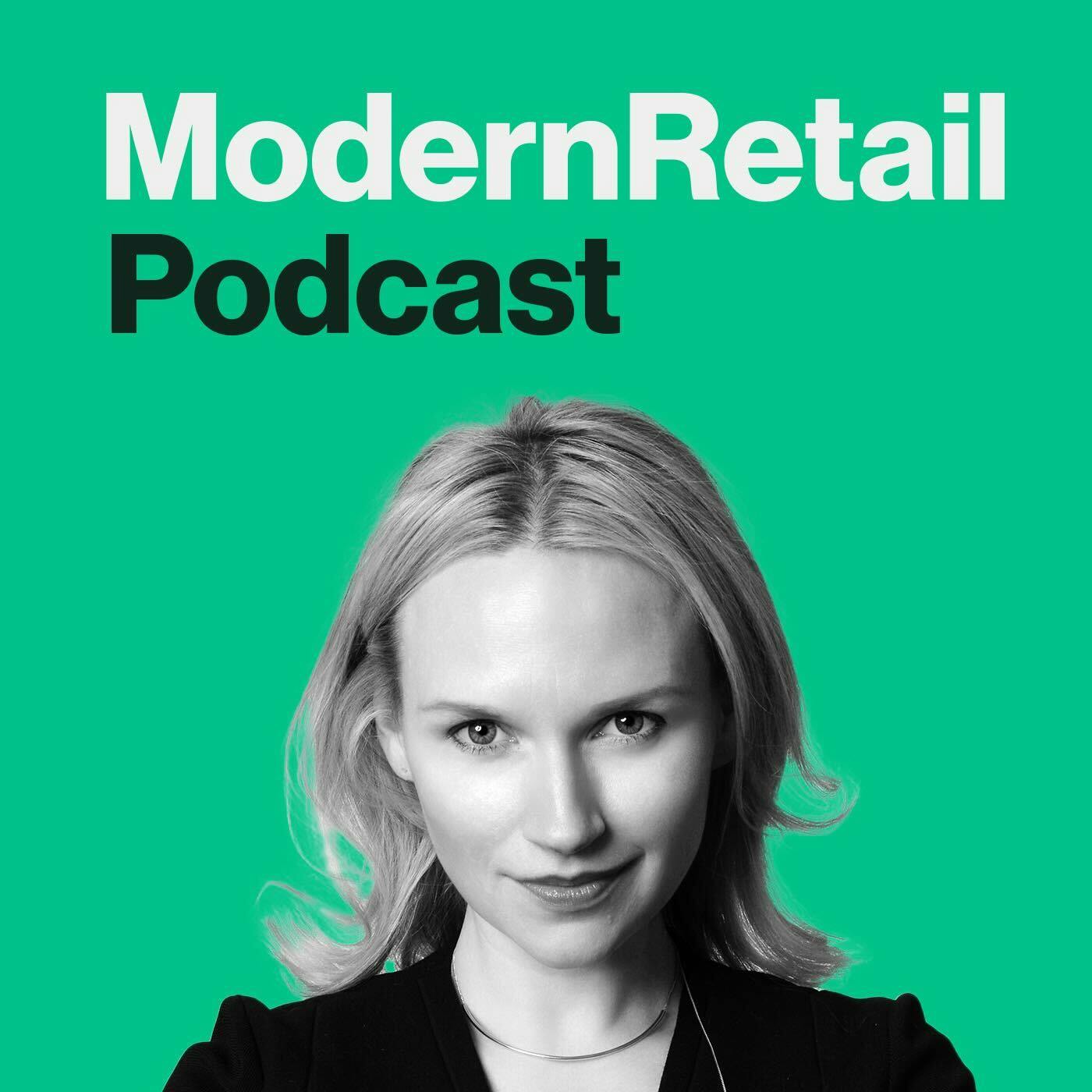
Violife's chief growth officer on making plant-based cheese mainstream
Violife is trying to become the Oatly of plant-based cheese.
The brand, which launched in 2013, is part of the Greek plant-based food company Arivia. But it didn't hit U.S. shelves until 2015. Since then, Violife has taken off. It is now the number one plant-based cheese in the world -- and it continues to roll out new products to continue its growth streak.
According to Violife's global president and chief growth officer Olga Osminkina-Jones, the current strategy is to make plant-based cheese into a mainstream product.
"The category itself is truly nascent," she said.
Osminkina-Jones is a consumer brand veteran. Before joining Violife, she held vp-level roles at companies like PepsiCo, Danone and Heineken. The reason she decided to go to a plant-based food startup, she said, was "to take on a challenge like the reinvention and acceleration of a category."
And indeed that's the project ahead. So far, things seem to be working. Violife is in most major grocers and continues to launch new products. Most recently, it unveiled a new cream cheese product that could be used in baked products.
But the real hurdle isn't about shelf space, but in getting more people to try the product. In many ways, what plant-based cheese needs is an Oatly moment.
"As you look at the trajectories of such categories as plant-based milk, you can clearly see that the scale of adoption was equally propelled by the collaborations and partnerships with the right channels and customers," Osminkina-Jones said.
With that, the focus is on getting more people familiar with the product so that the overall category can continue to grow. While Violife is in a good position as the category leader, Osminkina knows there's still a lot of work ahead.
"The key here is not to run before we can walk," she said.
37:2318/04/2024

Rundown: Gatorade expands healthy options, retail credit cards declining & Bark gets into pet air travel
On this week’s Modern Retail Rundown: PepsiCo-owned Gatorade is adding more hydration SKUs that resemble Liquid I.V. and Prime. Meanwhile, department store retailers face yet another hurdle: A new law that limits payment late fees can hurt credit card revenue for retailers like Macy's and Kohl's. Lastly, Bark just announced Bark Air, a new airline program that offers pets and their owners a more comfortable flying experience.
31:1513/04/2024
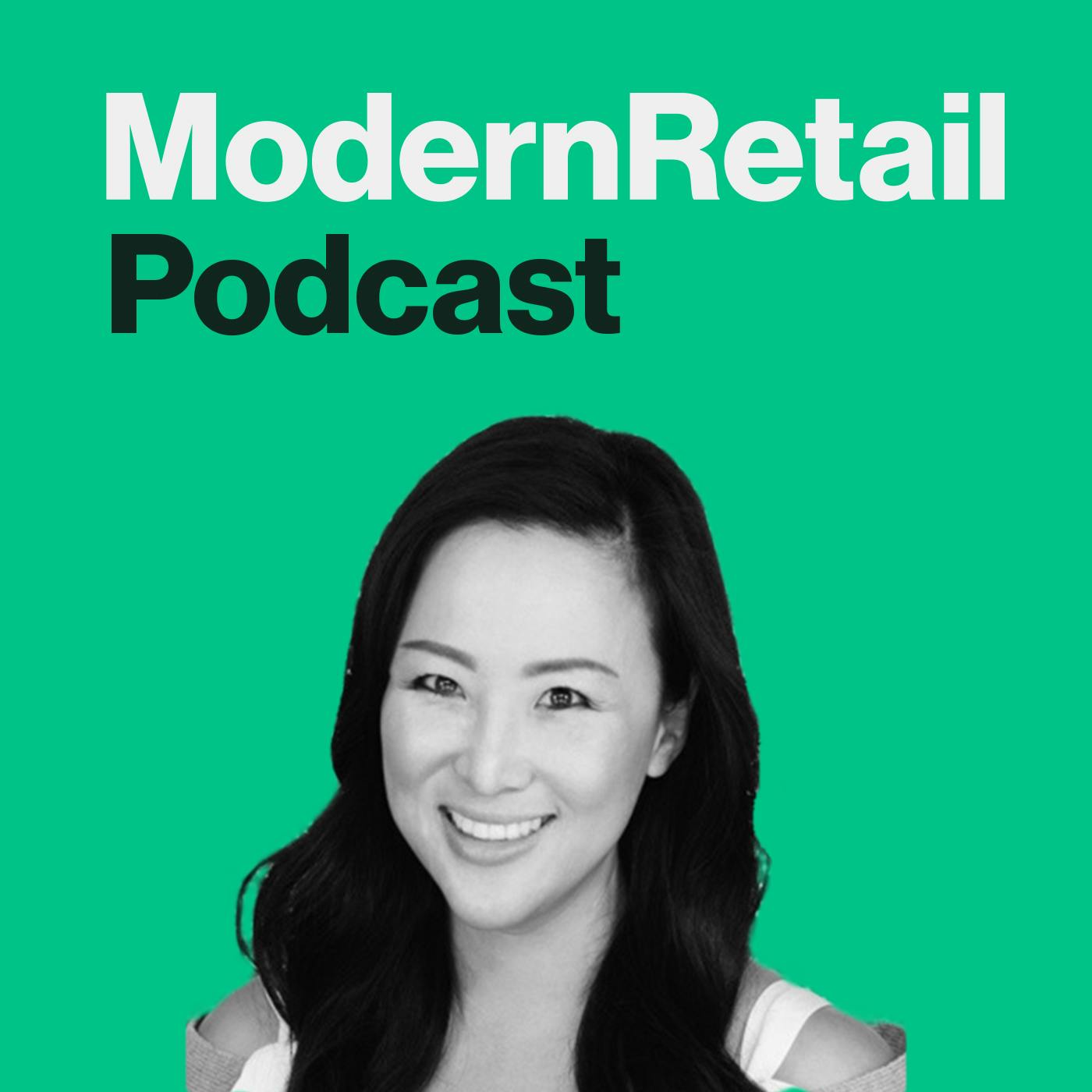
CEO Susan Kim on how Kopari was at the forefront of the clean beauty trend
Every beauty startup these days describes itself as a clean beauty brand, but skin-care brand Kopari was ahead of the curve.
"It's definitely table stakes now," said CEO Susan Kim.
But, it wasn't always that way. "The way I think about clean is that back in 2015, it was a differentiator," Kim said. And that's what helped Kopari -- which makes products including cleansers, moisturizers, sunscreen and deodorant -- grow into the profitable brand it is today, with revenue growing 45% in 2023.
Kim joined this week's Modern Retail Podcast and spoke about the company's rise, as well as how the company has evolved since she took on the role of CEO in 2020.
Before she joined the brand, she said, "I remember thinking: I have to keep tabs on this brand."
Cut to today and Kopari has launched into new areas like sunscreen, and has diversified its marketing to keep customer acquisition costs low. The company invests in performance media, earned media as well as other higher-funnel brand campaigns. "It's the harmony of all of those elements [coming] together that makes for a very efficient CAC," she said.
Another important differentiator for Kopari has been speaking directly to its customers. The company has a Slack channel, for example, where it frequently talks with its people who use the products every day. "That's instantaneous feedback that's consumer-centric," she said.
But beyond the feedback, Kim said these types of initiatives help the brand seem more human. "It allows us to have a community," she said. "That's really what it's about."
34:2711/04/2024

Rundown: Beauty sales slow down, retailers late on vendor bills & food startup drama
On this week's Modern Retail Rundown: Ulta's latest performance shows that beauty sales may finally be decelerating. Retailers like Express, Peloton and Saks have reportedly been late on paying their vendors -- indicating cash flow issues. Finally, there was drama in the food startup space as Momofuku gets litigious with competitors.
33:0506/04/2024
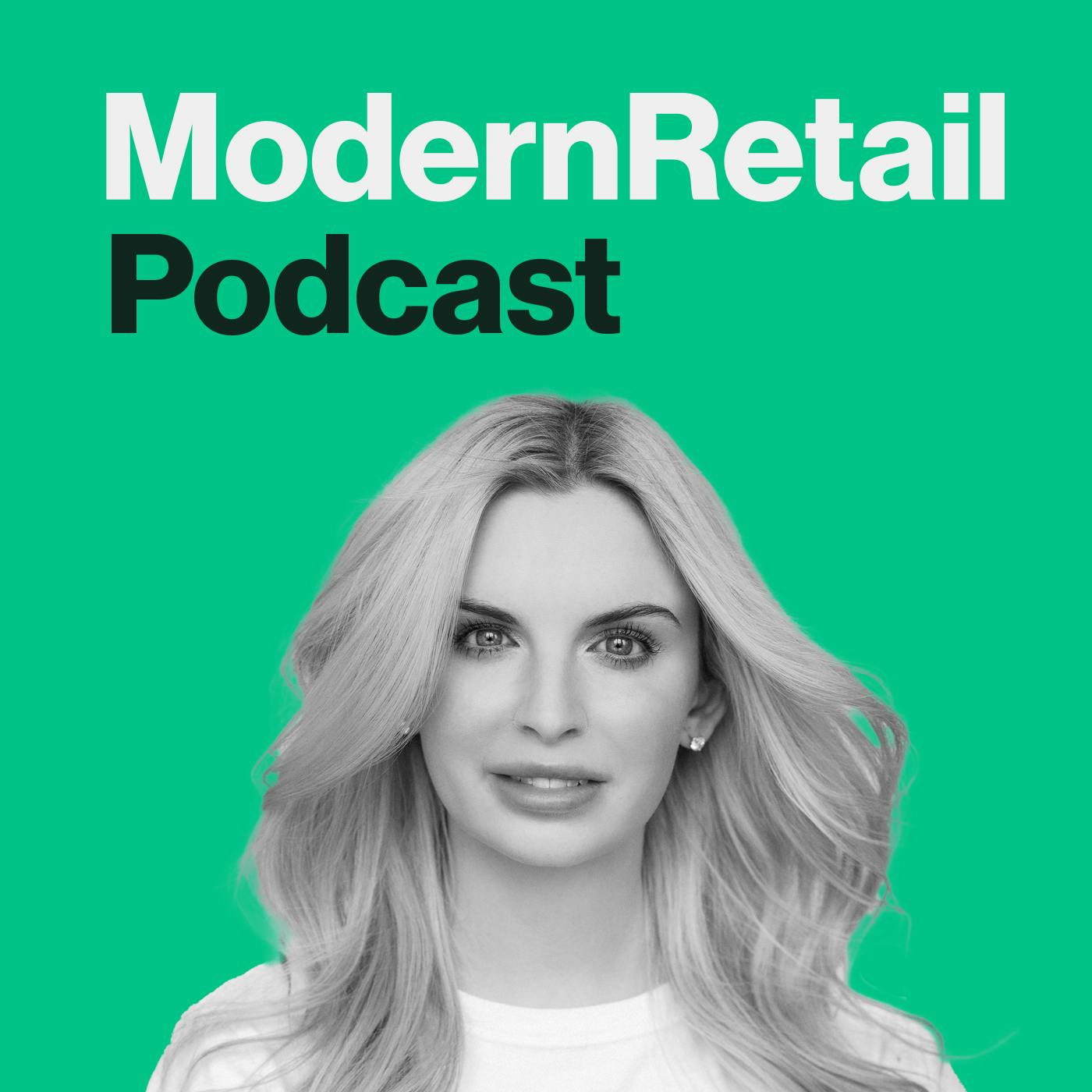
'It's really about quality over quantity': Pattern Brands' Suze Dowling on the new roll-up brand playbook
It's been a tough few years for roll-up companies, but Pattern Brands seems to have bucked the trend.
The company -- which began as design agency Gin Lane and evolved into a portfolio of DTC brands including Open Spaces, Onsen and Gir -- raised a $25 million Series B in 2022 -- and has been slowly building out its portfolio ever since.
While other roll-up players like Thrasio and Win Brands Group have faced major headwinds, Pattern has continued chugging along. Its co-founder and chief business officer Suze Dowling, who joined the Modern Retail Podcast this week, attributes this to the company's focus on its core consumer.
"If you're working across seven brands in a portfolio, it is helpful to try and find what is the grounding force," Dowling said.
This shopper is internally dubbed "Mia," and all of Pattern's brands -- including towel company Onsen and kitchen accessory maker Gir -- target "those micro-moments of [Mia's] day, and how can we make them just a little bit more special," Dowling said.
By having that focus on one type of shopper, Dowling said that Pattern has been able to remain grounded and focused. "I would challenge [the idea that] for some of the Amazon aggregators -- that also had 50 brands, 100 brands -- that they were able to find those same synergies in how they operated," she said.
For now, Pattern has been focused on finding the right brands to buy -- as well as finding the best modes for growth. "I'm very excited and kind of gung-ho on trying to make sure we build some mass retail partnerships over the next 12 to 18 months," Dowling said.
34:2504/04/2024
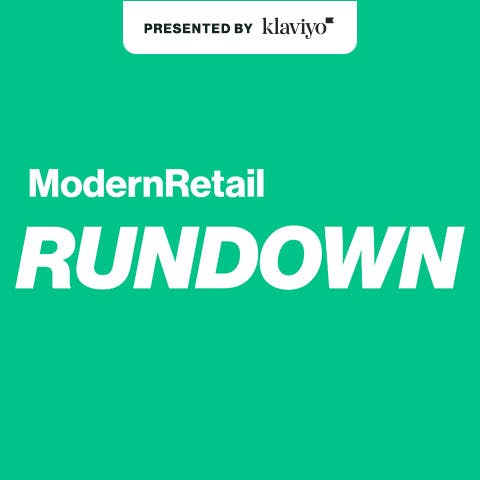
Rundown: H&M inches makes profitability progress, Wirecutter reviews & Dollar Tree price hikes
This week: H&M inches toward profitability under its new CEO, with the company planning to focus on cost-cutting and competing for price-conscious fast-fashion customers. Next, we also look at a Bloomberg story analyzing why being picked as Wirecutter's top wok ended up overwhelming the small shop that carries the product. Lastly, Dollar Tree announced plans to raise prices on select items to lure its growing high-income customer base.
25:1430/03/2024
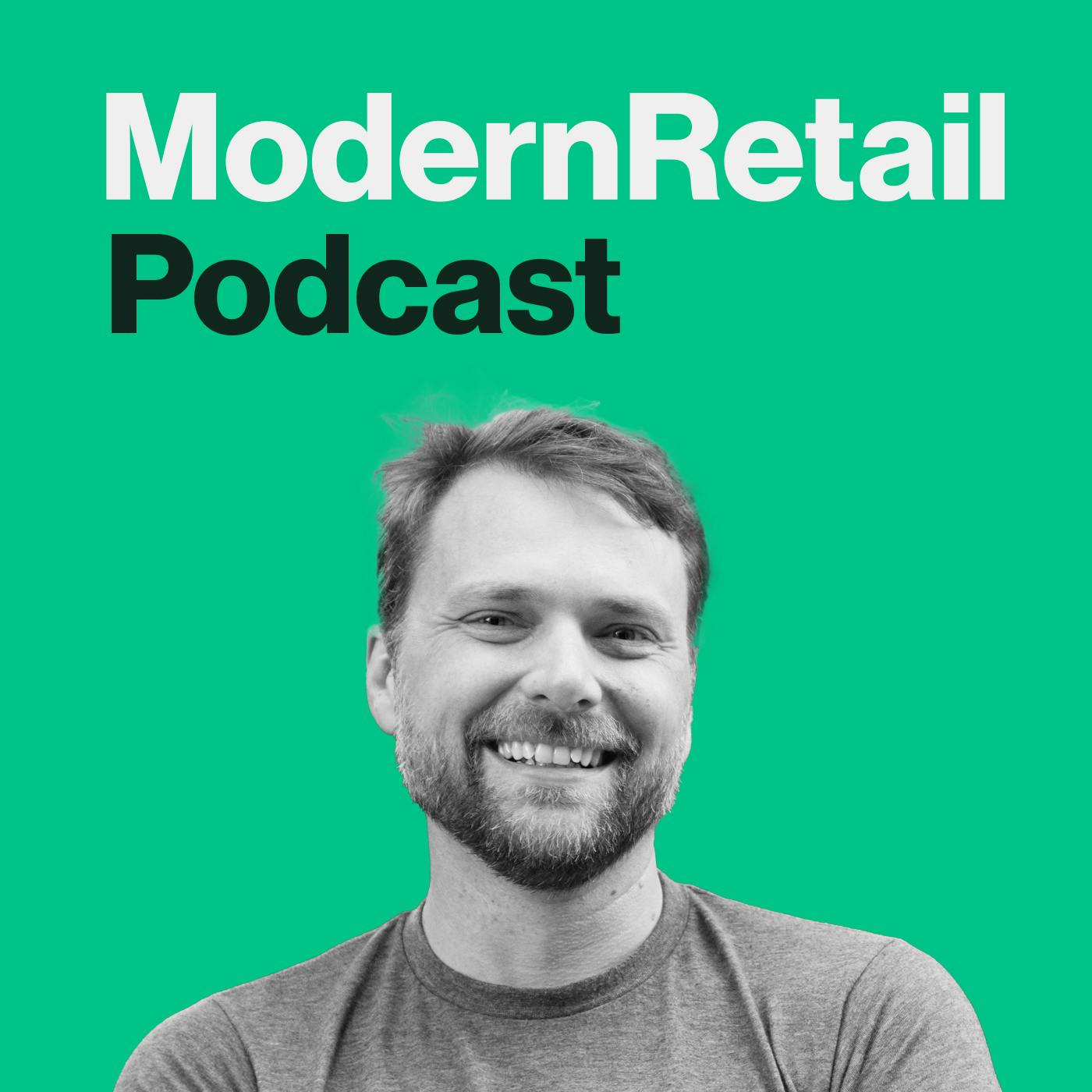
How Sunday is trying to shake up the yard and garden industry
Sunday wants to be the DTC brand that powers everyone's backyard.
The company first launched in 2019 with lawn care products, but has since expanded to pest control and garden products. While it's available in major retailers like Costco, Walmart, Lowe's and Target, Sunday's business is still 75% direct-to-consumer.
"To be the outdoor home platform that we want to be, we really need to be able to be across these categories," founder and CEO Coulter Lewis said on the Modern Retail Podcast.
He joined and spoke about how the company has grown over the last five years -- as well as what its plans are for the future.
One way Sunday is able to keep such a large DTC base is by tailoring its online experience. For example, it has people send in soil samples, which then creates a report on the types of products they need for their outdoor spaces.
"We actually now have the largest soil database ever created," Lewis said.
And that type of program can't be replicated in a store like Walmart. And even the store experience itself isn't ideal -- especially the garden sections filled with 15-pound sacks of dirt and fertilizer where Sunday is usually sold. "When you walk in that part of the store, you smell it from 20 feet away -- it is legacy brands, legacy branding and incredibly confusing and intimidating."
With this, Sunday is trying to have its customers opt for a newer brand that looks different than the previous industry leaders. And, have them purchase differently than before. While the company has been growing every year, it still has ambitions to reach new heights.
"We're still brand new," Lewis said. "Our category, there's been nothing new in half a century -- fifty years of the same. And so, we're growing every year, expanding quickly."
Get more from Modern Retail with the daily newsletter, sent out each weekday morning. Visit modernretail.co/newsletters to sign up.
31:4228/03/2024

Rundown: Nordstrom may go private, Unilever spins off ice cream biz & Shein's new revenue stream
This week’s Modern Retail Rundown includes a check-in on Nordstrom, with news of the founding family allegedly looking to take the department store private. We also delve into Unilever's ice cream division -- which includes the Ben & Jerry's and Magnum brands -- which may be spun off into a separate company. Lastly, we discuss reports of Shein pivoting into supply chain services.
29:2423/03/2024
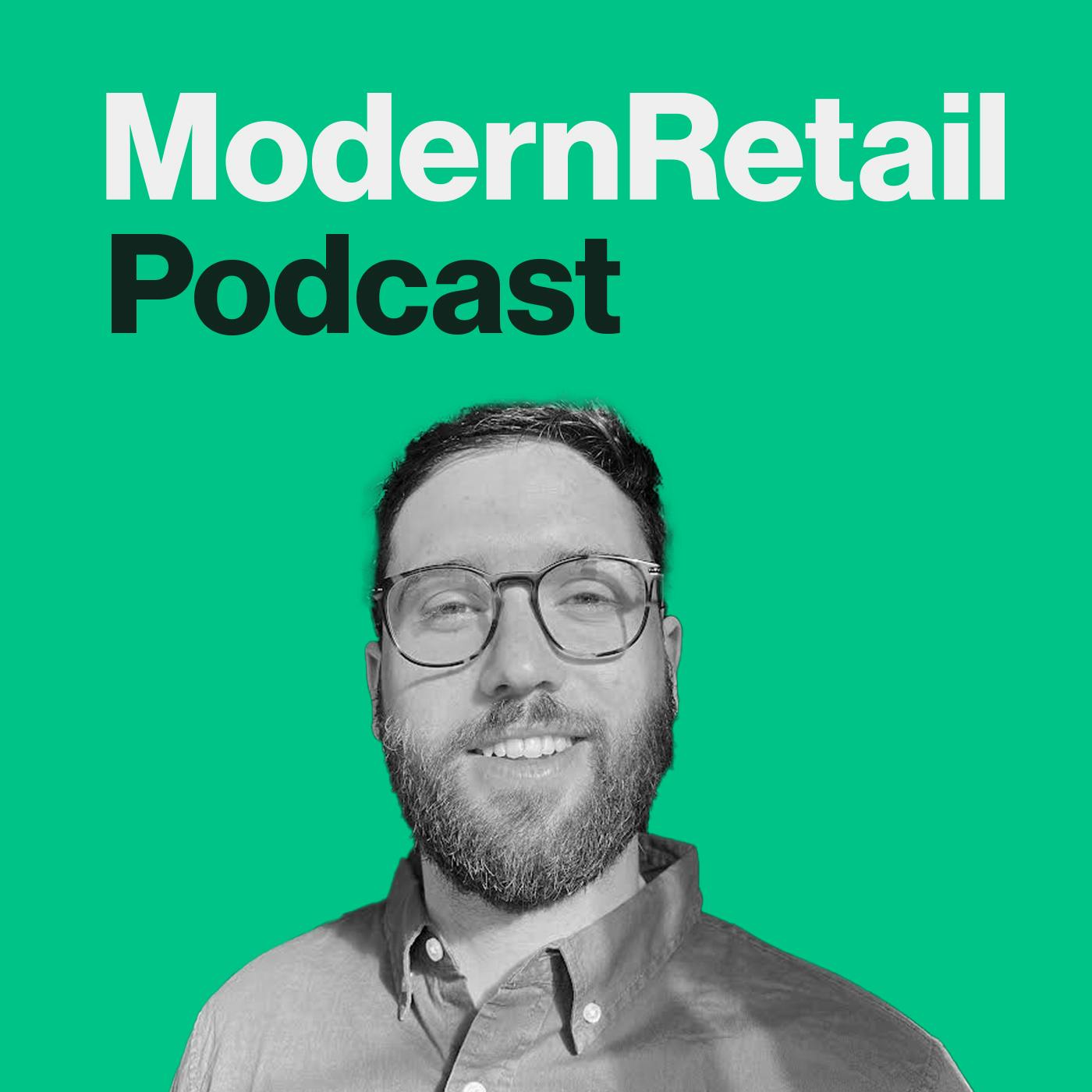
Ridge CEO Sean Frank on trying to build a $1B accessory brand
Accessory brand Ridge, best known for its wallets, is getting closer and closer to a $1 billion exit.
CEO Sean Frank has been saying this for years but thinks the option may come sooner rather than later. "If I want to sell for $1 billion, you need $100 million in adjusted EBITA, or we need roughly $50 million in net income," he said. "I think next year, we'll probably get to $50 million in net income."
Frank joined the Modern Retail Podcast and spoke about the company's growth as well as the state of consumer brands. Frank thinks Ridge's trajectory has been different from that of many other direct-to-consumer brands. For one, it never took on venture capital and instead grew every year while remaining profitable. What's more, while Ridge does sell via its website, it's long been available in other channels like Amazon, Nordstrom and Best Buy.
"We've never touted a DTC flag. We were never like, we're not going to sell on Amazon," he said.
What's more, Ridge -- which just added YouTuber Marques Brownlee as a board member and chief creative partner -- figured out early on that it couldn't just rely on a hero product as a means to scale. "I don't want to pick on anybody, but if you look at, like, an Away -- they still sell luggage, and they've sold luggage for 15 years at this point," he said. "It's more or less the same piece of luggage." Conversely, Ridge has expanded into new products like phone cases and men's wedding bands.
"We have these cohorts that are like, 'Yeah, I love the product, it's great. But I don't need another wallet.' There's nothing we can do to get them to buy another wallet," he said. "So we were like, OK, let's figure out what other people want."
With all of this, Frank is trying to continue to grow the company while looking at future prospects. While Ridge may reach its goal for a billion-dollar valuation, he's still waiting and seeing.
"It's just if we want to sell or not, right?" he said. "Does it make sense for the brand with what's going on?"
43:0421/03/2024

Rundown: The Body Shop shuts down U.S. business, Outdoor Voices closes stores & apparel C-suite shakeups
This week on the Modern Retail Rundown: The Body Shop filed for bankruptcy and announced it's closing down all U.S. operations. In a surprise move, Outdoor Voices is also closing all its stores -- with plans to remain an online-only DTC brand. This week also saw a number of C-suite shakeups across apparel and footwear, including Allbirds and Under Armour announcing new CEOs.
27:5016/03/2024
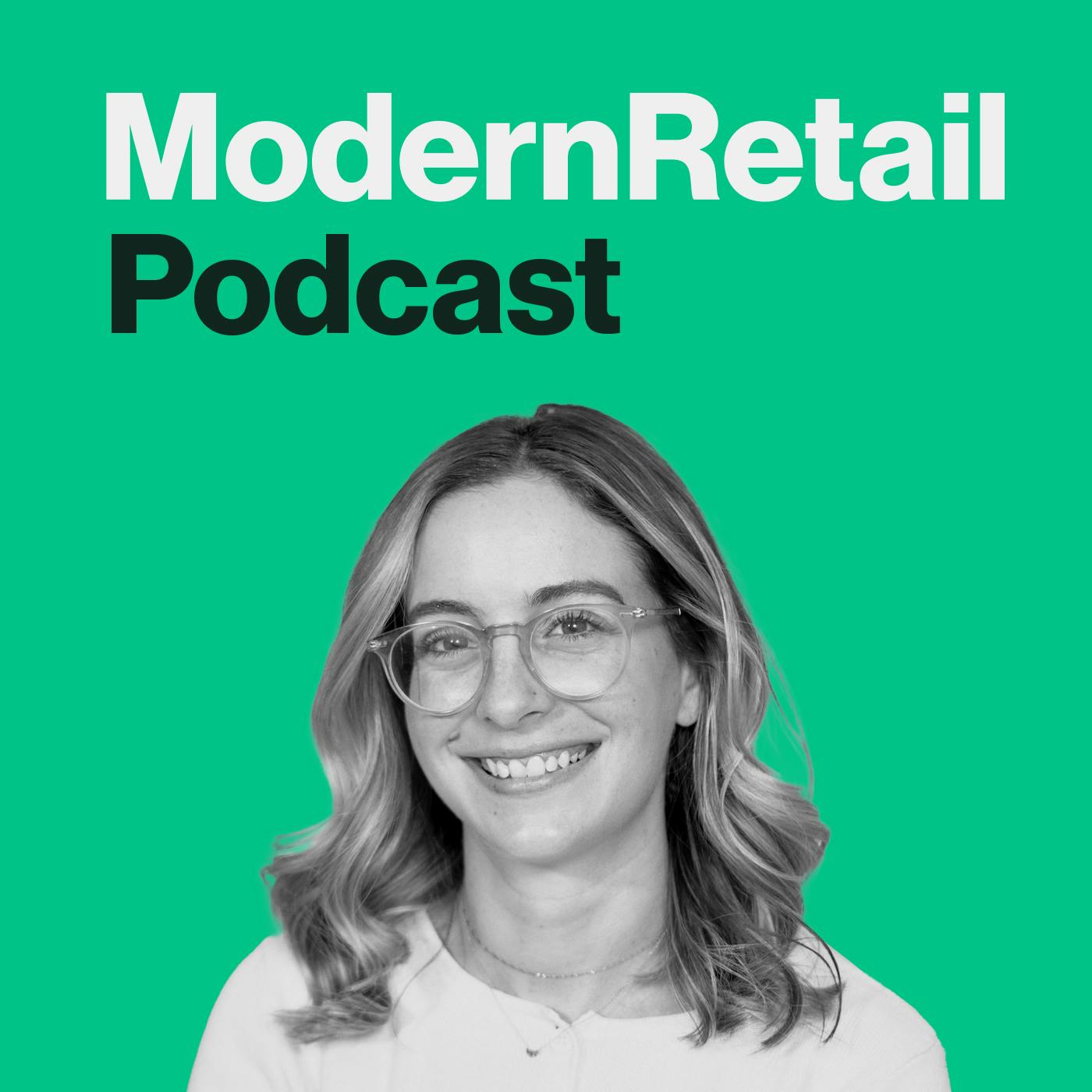
Rocco co-founder Alyse Borkan on making mini-fridges a conversation piece
Rocco is a DTC mini-fridge company that wants to make people care about the big hunks of steel electronics they have in their homes.
"Appliance brands don't actually have a brand," said Alyse Borkan, co-founder of Rocco. "I really saw an opportunity to do things differently than [what] the rest of the category was doing."
Borkan joined this week's Modern Retail Podcast and spoke about her new brand and how she's hoping to compete with the big players like Frigidaire.
Rocco launched last November with one product: a colorful fridge meant to showcase beverages. It works for both wine bottles and cans, and Borkan said the intention is to have an appliance that could complement a home's aesthetic. "People really kind of think about it as a little bar in their living room," she said.
It's still early days, but the product does seem to be resonating. Rocco sold out of inventory two weeks after launching. Ever since, the company has been playing catch up with fulfilling orders, but plans to be fully stocked and ready for more expansion in the next few months.
But Rocco isn't only direct-to-consumer. The brand launched in Nordstrom shortly after going live. "We really think this is something that people are going to want to experience in real life before they purchase," Borkan said. Rather than being one of hundreds in an appliance store, Rocco opted to be the only fridge in Nordstrom's furniture section.
The plan now is to continue growing -- ideally adding more wholesale partners over the next year. That could mean launching in an appliance store, but it could also mean partnerships with other brands -- especially drinks brands.
"We're hoping to grow pretty quickly just based on the initial interest," she said.
Get more from Modern Retail with the daily newsletter, sent out each weekday morning. Visit modernretail.co/newsletters to sign up.
30:5814/03/2024

Rundown: Harry's reported IPO, Ashley acquires DTC mattress group & Abercrombie eyes global growth
This week's Modern Retail Rundown show kicks off with a breakdown of Harry's long road to IPO, with the company reportedly filing to go public years after previous acquisition plans fell through. Meanwhile, furniture retailer Ashley announced it's acquiring Resident Home, a mattress group whose brands include DTC companies Nectar, DreamCloud, Awara and Siena. Abercrombie & Fitch, on the other hand, is projected to bring in $5 billion in annual revenue by growing its young customer base internationally.
Get more from Modern Retail with the daily newsletter, sent out each weekday morning. Visit modernretail.co/newsletters to sign up.
28:3809/03/2024
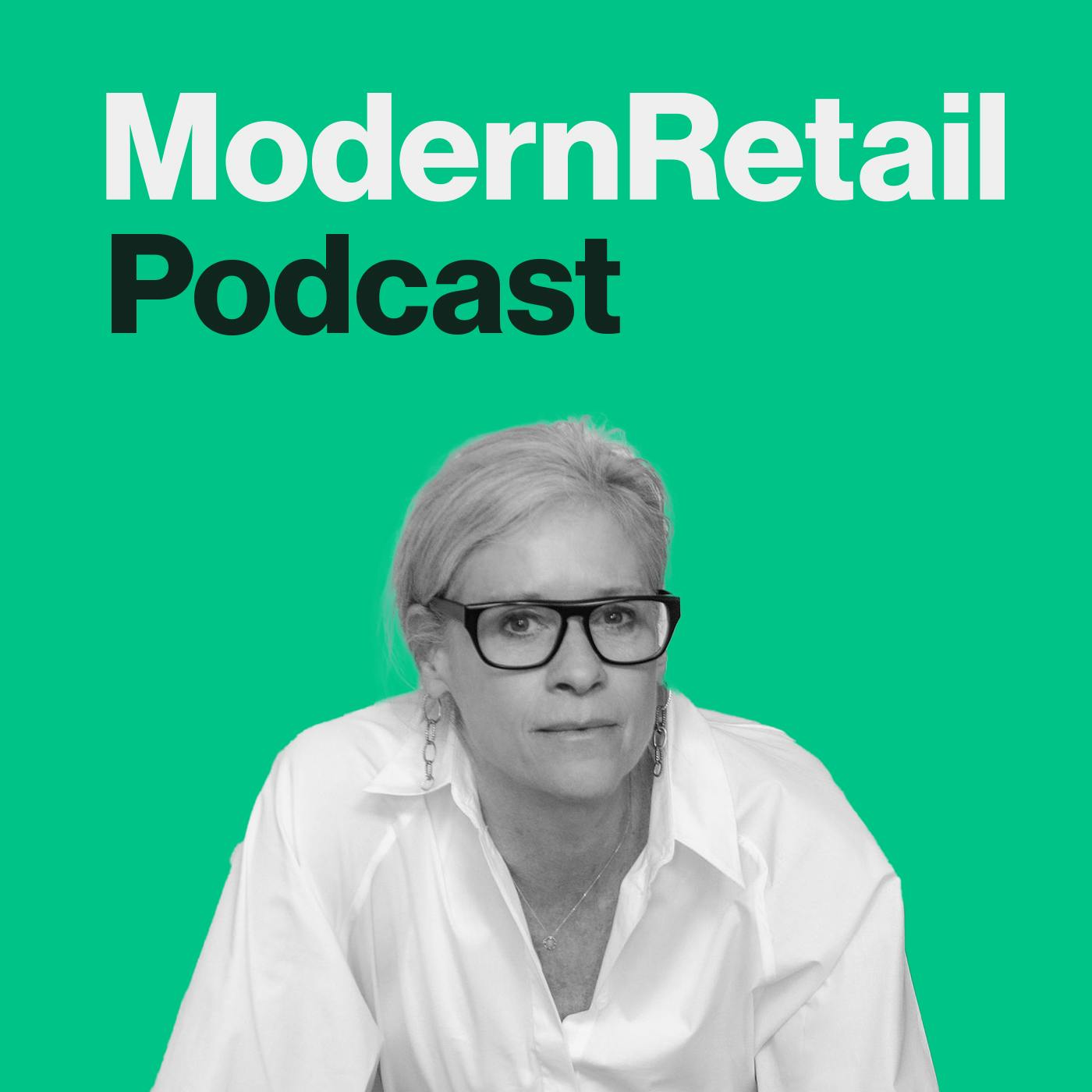
Époque Evolution co-founder Nancy Taylor on why she says 'responsibility' instead of 'sustainability'
Sustainability has become such a big buzzword in retail, but Époque Evolution co-founder Nancy Taylor thinks there's a better word for the work that needs to be done.
"I was truly passionate about trying to do things in the responsible way," she said. "So we took the word sustainable out of it and we used the word responsible."
That word has guided the Époque Evolution business since it launched in 2018 as a direct-to-consumer fashion brand. Her company was acquired by the Montreal-based Lolë, best known for its athleisure products.
Now, Taylor is the vp of design over the entire umbrella company Lolë brands, which involves having all the various lines -- Lolë, Époque as well as Lolë's mass-market apparel line -- work together.
Taylor joined this week's Modern Retail Podcast and spoke about the transition from DTC startup to living under a bigger brand, as well as the perks of working with more resources.
Get more from Modern Retail with the daily newsletter, sent out each weekday morning. Visit modernretail.co/newsletters to sign up.
31:2407/03/2024
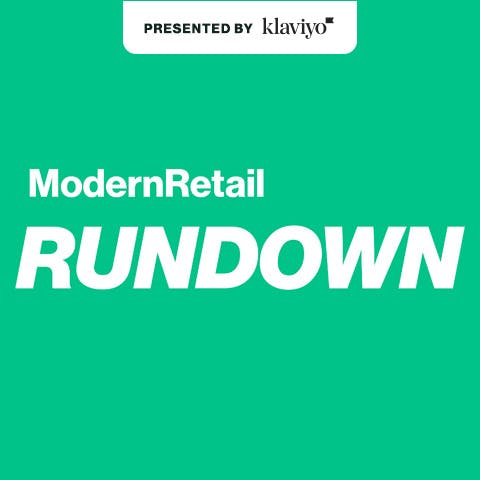
Rundown: Thrasio's bankruptcy, Warby Parker plans more stores & Celsius reports record sales
This week’s Modern Retail Rundown includes a breakdown of Thrasio's bankruptcy protection filing and the future of the Amazon aggregator's business model. Additionally, Warby Parker wants to eventually open 900 stores as the digitally-native brand has leaned on physical retail for growth. Last, we chat about Celsius Drinks' milestone of becoming a billion billion-dollar energy drink company.
29:3302/03/2024
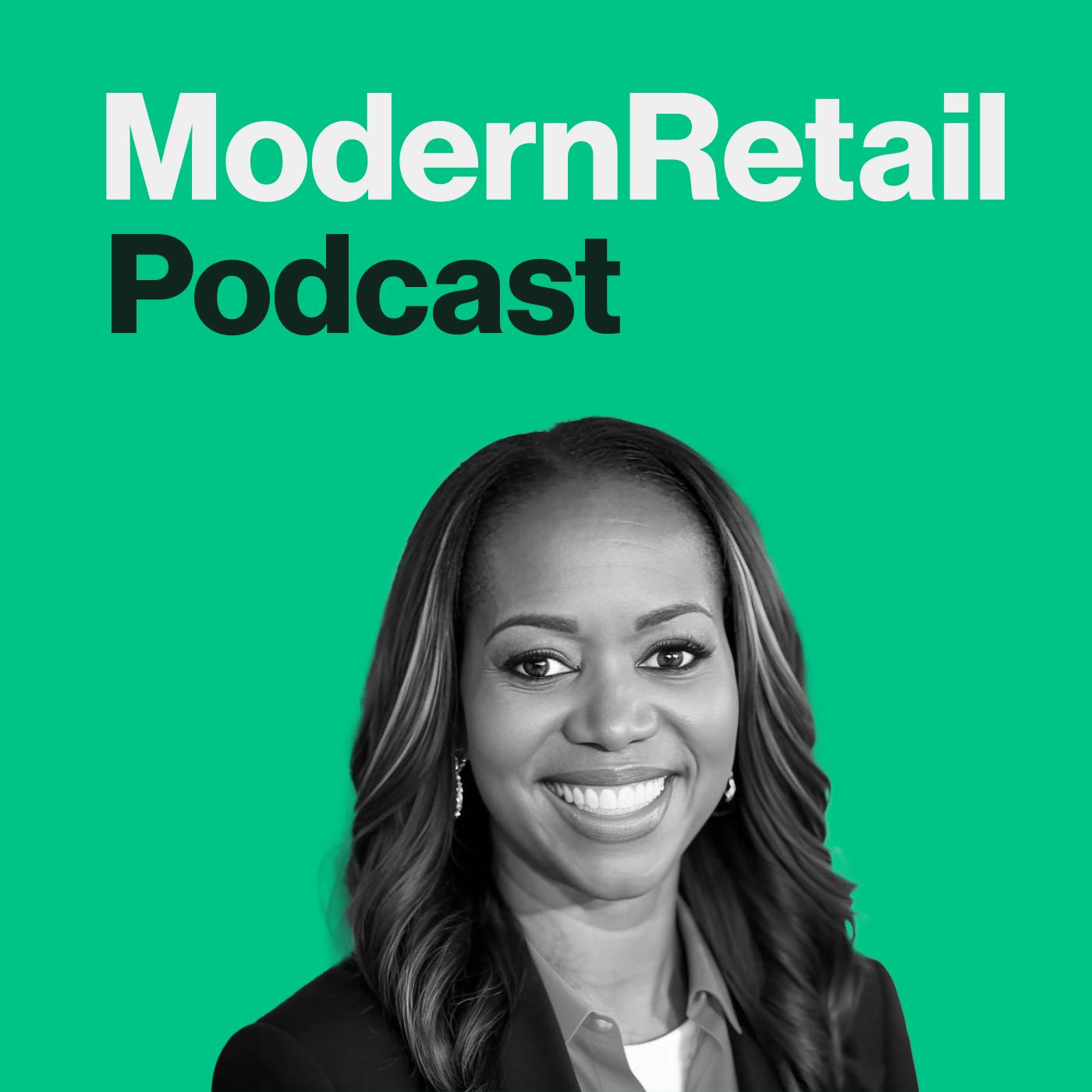
Wing CFO Shannon Nash on why 2024 is the "year of the drone"
In Shannon Nash's opinion, 2024 is the "year of the drone."
Nash may be biased, as she's the CFO of Wing, the Alphabet-owned drone delivery company that's currently being trialed by companies like Walmart and DoorDash. But there is some data to back this up. For one, Wing announced an expanded partnership with Walmart in the Dallas/Fort Worth area. What's more, recent changes to FAA regulations will likely make it easier for the company to test out other areas.
Nash joined this week's Modern Retail Podcast and spoke about the current state of drone delivery and where she thinks it's going.
Drone delivery isn't a new concept, but it seems to be taking flight (pun intended) this year. In Australia, currently Wing's biggest market, one site has approached 1,000 drone deliveries a day. In Texas, where Wing is working with Walmart, the platform has already made 5,000 deliveries over the course of a few months.
"We have some customers that order roughly two times a week," Nash said. Wing's most ardent customers, however, "are ordering three times a week." In her eyes, it points to consumers having "very favorable views of drone delivery."
Still, the only way to really reach mainstream is to expand to more areas and get more people used to the concept. With that, Nash said, "nothing does advertising and marketing [better] than seeing the drones in the parking lot and [people] going, what the heck is this?" Similarly, with regulations beginning to change to allow for larger delivery areas, the platform has plans to expand at rapid pace.
What will that rapid expansion look like? Currently, Wing customers buy the products in its own app, rather than through the retailers. But there could be a future where it becomes an extension of these businesses.
Nash wouldn't get prescriptive about what the future of drone delivery ordering looks like. "I think the market is going to determine how that happens," she said.
Get more from Modern Retail with the daily newsletter, sent out each weekday morning. Visit modernretail.co/newsletters to sign up.
34:3429/02/2024

Rundown: Reddit's IPO, Beyond Meat gets healthier & Macy's proxy fight continues
Every week on the Modern Retail Rundown, we cover the latest headlines from the retail world.
This week, the team discusses Reddit’s S-1 drop, meaning the social platform -- which launched in 2005 -- is finally going public after years of speculation. Also, a look at Beyond Meat’s new game plan to turn around weak sales, which includes launching lower fat, higher protein products faux meat burgers and scaling back China operations. Lastly, an update on Macy’s proxy fight by activist investor Arkhouse Management.
Get more from Modern Retail with the daily newsletter, sent out each weekday morning. Visit modernretail.co/newsletters to sign up.
27:3124/02/2024
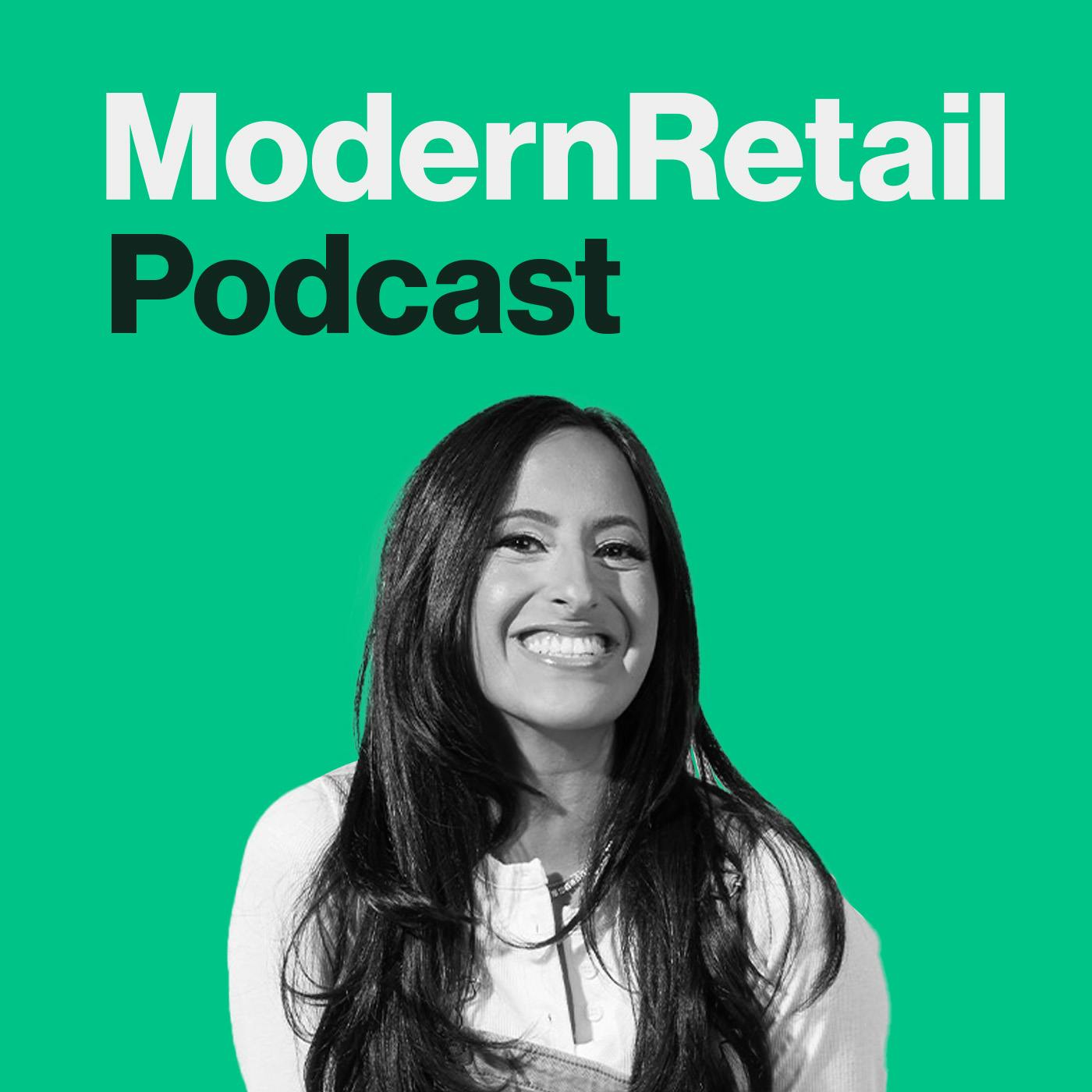
Little Words Project founder Adriana Carrig on making friendship bracelets a thriving business even before Taylor Swift
True, Taylor Swift made friendship bracelets popular thanks to her song "You're on your own, kid." But the brand Little Words Project has been making friendship bracelets long before Swifties adopted them in full force.
Little Words Project launched in 2013 as a quasi-side hustle of founder Adriana Carrig. But the project soon turned into a standalone business. Fast forward to today, Little Words Project has 12 stores around the U.S., is profitable and has hit a revenue run rate of over $20 million.
Carrig joined this week's Modern Retail Podcast and spoke about the brand's journey and what it's focused on in the year to come.
As Carrig sees it, community is what has helped Little Words Project be so successful thus far. In its early days, Carrig would post on Instagram -- before it became crowded with preened photos and airbrushed influencers -- about what the business was and how she was growing it.
"[It was] really just bringing our community on along for the ride," she said. "It definitely was the foundation for what the community ultimately became, which was this group of friends that just want to support one another, help one another, when they're down."
It's easy to start an online community, but harder to keep it at the forefront when a business grows. For example, in 2022, Little Words Project expanded beyond its direct-to-consumer roots into large stores like Target.
"When it comes to the big-box story and how we keep that community build, it's really just about making decisions with the concept of the community first," she said. That meant making sure she was able to market Little Words Project in the same ways she had been doing online for years, as well as keeping the products at the same price point. And while Carrig has considered fading into the background and not being the brand's figurehead, she now realizes, "I do want to be at the forefront."
This remains true even when the products go viral, as was the case with the Taylor Swift song. The friendship bracelet became one of the summer's hottest accessories, after Swift's fans started gifting them to each other during her Eras tour concerts.
But, according to Carrig, while other brands tried to ride the wave of Swift fandom -- making new products to try and go viral -- Little Words Project changed nothing. But, the company was still able to be part of the fervor in bigger ways compared to brands that were only just now jumping on the trend. Musician Lance Bass gifted Taylor Swift a stack of friendship bracelets from Little Words Project on stage at the VMAs last year.
But even with the help of Swift, Carrig said the business has been so good that the Swift bump was only negligible. "We saw a less than 1% sales lift from that collection, which is immaterial when you think about the overall brand presence," Carrig said. "And I think it just goes to show that the brand had its own legs before Taylor. And while the rest of the world who jumped on Taylor-adjacent things -- that maybe didn't make sense to their regular product assortment -- they might have seen a more significant lift because they really did grift."
Get more from Modern Retail with the daily newsletter, sent out each weekday morning. Visit modernretail.co/newsletters to sign up.
36:5222/02/2024

Rundown: Express's financial woes, retailers ban shoppers for excessive returns & Walmart eyes Vizio acquisition
Every week on the Modern Retail Rundown, we cover the latest headlines from the retail world.
On this week’s show, we take a look at Express’ financial status in light of mounting debt and potential bankruptcy reports. Next, online returns rate continue growing among retailers – as highlighted by a story in The Cut this week -- and it's leading some brands to ban shoppers with a penchant for returning products. Finally, Walmart is reportedly interested in buying Vizio -- which could mean more competition with Amazon.
Get more from Modern Retail with the daily newsletter, sent out each weekday morning. Visit modernretail.co/newsletters to sign up.
29:0417/02/2024

The Goods Mart founder Rachel Krupa on building a convenience store that's more than a shoppy shop
The Goods Mart is trying to update the convenience store experience while not falling into the trappings of the so-called shoppy shops.|
The store -- which first launched in 2018 and currently has three different locations in Manhattan -- features a variety of better-for-you snacks like snack bars, coffee and other beverages. The locations are very small. Some are only 400 square feet. The idea is to create a new type of quick-service store that may look updated with startup brands, but services customers' everyday needs.
"We want to be more accessible," said Rachel Krupa, founder and CEO of The Goods Mart. "We want you to come in every day and get what you want."
Krupa joined this week's Modern Retail Podcast and spoke about the trajectory of the store, as well as its recent focus on business-to-business sales.
35:1815/02/2024

Rundown: Zac Posen heads to Gap, Target reportedly weighs paid membership, and Tapestry shows promising growth
Every week on the Modern Retail Rundown, we cover the latest headlines from the retail world.
This week Gap Inc. announced it’s bringing on designer Zac Posen as creative director to help revamp its brands, with a big focus on Old Navy. Next, a look at why Target is currently weighing a new Walmart+-like membership program to attract more loyalty, according to a Bloomberg report. Finally, Tapestry, the owner of Coach, Kate Spade and Stuart Weitzman, posted some positive results in its most recent quarter, aided by its growing Gen Z and millennial customer base.
Get more from Modern Retail with the daily newsletter, sent out each weekday morning. Visit modernretail.co/newsletters to sign up.
25:5810/02/2024

'There's this longevity': Bugaboo's Jeanelle Teves on expanding a premium baby brand in North America
The baby product retail landscape has changed dramatically over the last decade, and Dutch design brand Bugaboo is making sure it's keeping up with the trends.
Bugaboo, which first launched in 1999, is best known for its higher-end strollers, but the brand makes others products like car seats, high chairs and play yards. And while Bugaboo has been sold in the U.S. for decades, North American expansion is a major priority.
Jeanelle Teves, Bugaboo's chief commercial officer, is leading this charge. And she joined this week's Modern Retail Podcast to discuss the company's history and strategy.
"Bugaboo is leading in the premium category," Teves said. "[But over the years,] the parent has a lot of choice -- and so it is our role and our mission at hand is to really connect: what is the Bugaboo brand association?"
One of the ways Bugaboo first rose to fame in U.S. was by going viral before online virality existed. 'Bugaboo was featured on Sex and the City.' And that was a really pivotal moment for the brand," Teves said. From there, celebrities began showing off their Bugaboo strollers and the company's placement as a premium baby player was cemented.
But Bugaboo has continued to try and find new ways to generate similar types of buzz. Most recently, for example, the company partnered with the apparel brand Kith on a limited-edition line of strollers and accessories. "We continue to be really selective with the brands that we partner with," Teves said.
Beyond the partnerships, Teves sees her role as a growing the word-of-mouth network that already surrounds the brand. "One of the things I'm most proud of is if I am at a dinner party in New York, and I'm speaking with a parent, where someone with a much older child identifies themselves: 'I was a bugaboo mom,'" she said.
As Teves sees it, her job is focused on making that moment happen more often in North America. "There's this longevity and this high quality and superiority that lasts multiple children," she said. "Regardless of where you are in the world, that is what Bugaboo is known for."
35:2608/02/2024

Rundown: H&M CEO out, TikTok expands Shop & Amazon's ads business grows
Every week on the Modern Retail Rundown, we cover the latest headlines from the retail world.
First is a look at the sudden departure of H&M’s chief executive officer, who cited the demanding nature of the job. Next, TikTok is reportedly testing a video feature that shows users similar products sold in TikTok Shop -- hinting at an increased focus on growing e-commerce. Finally, why Amazon’s advertising business continued to grow during the fourth quarter -- surging 27% year-over-year, to $14.7 billion.
Get more from Modern Retail with the daily newsletter, sent out each weekday morning. Visit modernretail.co/newsletters to sign up.
29:2003/02/2024

Misfits Market COO Corey Farrell on growth plans post-Imperfect Foods acquisition
Misfits Market thinks it has found a unique way to tackle the difficult business that is online grocery.
The company, which acquired Imperfect Foods over a year ago, has a pretty simple premise. It partners with farms and brands, and sells products that otherwise wouldn't hit major retail shelves. The name of the game for this type of business is scale, which is something COO Corey Farrell is constantly thinking about. But the ethos behind Misfits is sustainability.
"We wanted to be able to offer the consumer more complete shopping experience, to help us ultimately reduce more food waste," Farrell said on this week's Modern Retail Podcast.
The Imperfect acquisition has helped with growth. With the two companies combined, Misfits has a large presence on both coasts, and is growing both its first-party and third-party fulfillment. With this comes other areas of expansion -- namely, private label.
Misfits does not bill itself as a competitor to Walmart. "Our assortment is limited," Farrell said. Right now, it sells around 700 items, compared to the over 20,000 most grocery stores contain. But, by working with the right partners and being able to create new private-label products that wouldn't otherwise be sold, Misfits is generating new revenue streams. Farrell pointed to a product Misfits sells that consists of broken pretzels that would otherwise be thrown away, which are dipped in chocolate.
"That's an example of part of what we're trying to do with our private-label assortment that's very aligned with our mission," he said.
Ultimately, the idea is to grow Misfits so that it's available in the entire country and continue to work with companies that want to offload otherwise unsellable products.
"As we expand our assortment. We want to make the shopping experience more seamless for consumers," he said.
Get more from Modern Retail with the daily newsletter, sent out each weekday morning. Visit modernretail.co/newsletters to sign up.
29:2801/02/2024

Rundown: Macy's turns down buyout bid, Solo Stove's marketing woes, & Etsy's Super Bowl ambitions
This week on the Modern Retail Rundown, the editorial staff looks into big retail changes afoot.
First, we analyze why Macy's ultimately rejected a $5.1 billion takeover bid from Arkhouse Management and Brigade Capital Management. Then, a discussion about Solo Stove's flashy advertising campaign with Snoop Dogg, and why the marketing world is debating its merits. Finally, we discuss Etsy's proposed plans to allegedly advertise during the Super Bowl and what it means for sellers and shoppers alike.
Get more from Modern Retail with the daily newsletter, sent out each weekday morning. Visit modernretail.co/newsletters to sign up.
29:3627/01/2024

SharkNinja CEO Mark Barrocas on going from infomercials to TikTok
SharkNinja -- the company behind the Shark and Ninja household product brands -- sees TikTok as the late-night infomercial.
The company has been around since the '90s, but has spent the last two decades specifically growing out its product catalog and finding new channels for marketing. Leading this charge is CEO Mark Barrocas, who joined the company in 2008 as president.
Back then, SharkNinja -- then called Euro-Pro -- had fewer products and was mostly known as the brand behind items sold via long-form late-night infomercials. Then, it was mostly known for its Shark vacuums.
"In 2009, we created the Ninja brand -- and really, from there, we started to kind of reframe the business around identifying either known or unknown consumer problems, and then building a technology and innovation company that was able to solve those problems," Barrocas said on the Modern Retail Podcast. Now, SharkNinja is in 31 different product categories, sold in 26 markets around the world.
According to Barrocas, the key to SharkNinja's growth has been its focus on constantly innovating home products. "We take a very maniacal approach to product development," he said.
Additionally, the company has been able to keep up with the times, marketing-wise. While SharkNinja still does produce late-night commercials -- those likely will never go away as long as linear TV continues to exist -- the brand has found a new channel with TikTok. "We built our social media team up tremendously over the last few years. We have products like the Ninja Creamy that have a billion impressions on TikTok," he said.
This focus on new channels to find new eyeballs likely won't stop soon. "I continue to think that we'll invest more and more in social media, we'll invest more in partnerships, we'll invest more in events," Barrocas said.
Get more from Modern Retail with the daily newsletter, sent out each weekday morning. Visit modernretail.co/newsletters to sign up.
34:1325/01/2024

Rundown: NRF highlights, Hello Bello's new direction & December sales figures
On this episode of the Modern Retail Rundown, the editorial staff breaks down the retail industry’s biggest stories. This week things kicked off with NRF's Big Show, covering themes like AI, inventory management and the American consumer's mindset. Meanwhile, Kristen Bell and Dax Shepherd's baby brand Hello Bello is set to be revived by its new owner, after the brand named a new CEO this week. Finally, a look at the much-needed holiday sales growth retailers saw in December, as indicated by new numbers released by the Commerce Department.
25:4520/01/2024

AriZona Beverage CEO Abid Rizvi on the current beverage landscape
AriZona Iced Tea is a ubiquitous product in the U.S., but you didn't learn about it because of a flashy ad campaign.
"We have never had a billboard," proclaimed AriZona Beverage Company's CEO Abid Rizvi. "I will say this with almost 100% confidence: you will never see an AriZona billboard in Times Square."
Instead, the way AriZona has marketed itself is by simply having a presence at the store. AriZona judges its products on three dimensions: does a product look good? Does it taste good? And is it priced fair? According to Rizvi, it's those three guiding principals that have led to AriZona's success.
Rizvi joined this week's Modern Retail Podcast and spoke about the brand's history and its plans for the future.
AriZona first launched in 1992 as a side hustle to co-founder Don Vultaggio's distribution business. Vultaggio formulated some iced tea and, through his distribution contacts, was able to get shelf space in some stores. Things snowballed from there -- with AriZona becoming one of the main competitors to players like Snapple. One revenue estimate puts the iced tea business alone at $2 billion in annual revenue.
But iced tea isn't AriZona's only product. The company has expanded into other areas like fruit snacks and, most recently, hard iced tea. It's these ambitions -- along with international expansions -- that Rizvi, who became chief executive in 2016, oversees.
But even when launching new products or going into different categories, the thesis has remained the same. "What I can tell you is: globally, no matter where you go in the world, people like good-tasting beverages," Rizvi said.
With that focus on product, AriZona has traditionally shied away from expensive marketing gimmicks. Instead, according to Rizvi, the company's most important goal is making a product that tastes good and unique -- as well as has a unique branding that catches people's eyes in stores.
"People are not buying any particular brand because they saw a Super Bowl ad," Rizvi said.
37:0718/01/2024

Rundown: Nike shakeups, Rent the Runway restructuring & DTC fire sales
This week on the Modern Retail Rundown: Nike announced the surprising departure of its COO Andy Campion, alongside the end of its longterm partnership with golf star Tiger Woods. Similarly, rental service Rent the Runway is also restructuring -- with its COO also leaving and the company laying off 10% of its employees as it tries to improve the business. Finally, industry watchers expect to see more direct-to-consumer exits in 2024 as more founders look to sell their companies.
27:5713/01/2024

Jolie CEO Ryan Babenzien on how to market a shower head as a wellness product in the post-DTC era
Jolie launched with the thesis that it could convince people that a shower head is a wellness product.
The bet seems to have worked. The company, which says it is profitable, is about three years old and brought in more than $25 million in revenue in 2023. Co-founder and CEO Ryan Babenzien credits two things with its success: an ardent fan base that evangelized the brand and a growing omnichannel strategy.
Babenzien joined the Modern Retail Podcast this week and spoke about Jolie's growth and future business strategy.
Jolie makes a filtered shower head. As Babenzien described it, this is "step zero" of everyone's skin care routine. "The one constant… is your shower," he said. "You may change your shampoo every week, but you still shower."
With that, Jolie has taken great pains to market itself as something beyond a product you would buy at the hardware store. Some of the brand's first store accounts were in untraditional spots. This was by design -- find retail environments that cater to people looking for better wellness products. For example, Jolie is available at Erewhon as well as Revolve.com. "That was sort of step one, let's show up where the customer with an interest in this stuff will show," said Babenzien. "It's pretty simple, not a lot of complexity, common sense. And from there, we can start to scale out."
Once the customers found Jolie, the company made user-generated content a big part of its marketing play. "People influence people," Babenzien said. With that, the company has amassed nearly 20,000 pieces of unique UGC over the last few years.
The idea was to use this free content as a way to offset expensive digital marketing. "Paid marketing has not performed well for over a decade. And yet the entire industry is still spending the majority of their marketing budget on paid," Babenzien said. "It just isn't working, guys."
With that the focus is on more growth, but keeping profitability in mind. While the company has focused on beauty and wellness destinations, that doesn't mean Jolie won't be sold in some more traditional environments.
"We see us showing up in Home Depot one day and Costco," Babenzien said. "Even though we're a beauty wellness tool, we're just going to be positioned slightly different in Home Depot."
33:5911/01/2024

Rundown: Price hikes backfire, Shein & Temu suppliers struggles & Peloton's TikTok partnership
This week on the Modern Retail Rundown: First, an overview of major CPGs like PepsiCo and retailers like Target receiving backlash for relentlessly raising prices the past few years. Then, a new report says that Shein and Temu's suppliers are being squeezed, experiencing thin margins and pressure to cut prices. Finally, Peloton's latest turnaround strategy includes launching content on TikTok.
31:0306/01/2024

Bombas co-founders David Heath & Randy Goldberg on how the apparel brand bucked the DTC doldrums
In a world of DTC booms and busts, Bombas has remained a rare constant.
The brand, best known for its socks, launched in 2013 as an online-only brand and has consistently grown since then. Today, it brings in over $300 million a year, and while e-commerce remains one of its major revenue channels, it has expanded into stores like Dick's Sporting Goods and Nordstrom.
According to co-founders David Heath and Randy Goldberg, the key to Bombas's success has been in staying focused on its core competencies and not expanding too quickly. "We were never the brand that was like let's go out and raise $150 million and try to be the biggest company as quickly as possible," said Heath.
The two co-founders joined the Modern Retail Podcast this week and spoke about how Bombas has been able to grow while remaining true to its DTC roots as well as what's on the horizon for the brand.
The major constant of Bombas's strategy has been being able to tell its story. The company sells basics like socks, underwear and t-shirts. And it also has a buy-one-give-one model that donates an item of clothing to a person experiencing homelessness. According to Heath, the company has always focused on telling that story as simply as possible. "From day one, as part of our go-to-market strategy, we invested heavily in brand," he said.
But the other big lesson has been to figure out how to roll with the punches. As consumption patterns shift -- and social algorithms change -- so too does marketing. "I think that's the hallmark of really good modern brands: you're going to find people where they are in their world -- and you're attaching yourself to their life and not asking them to come into your world," said Goldberg.
Put together, Bombas has figured out a model that doesn't stray from its root but allows it to grow to the hundreds of millions. And the co-founders plan on keeping with that plan this year and beyond.
"We look at the brands that we admire -- the Nikes, the Lulus, Under Armours, Patagonias of the world," said Heath. "These brands have all been around for 20, 30, 40 years, and they've built brick by brick every single year."
46:5104/01/2024

Bankruptcies, VC tumult & TikTok: The Modern Retail Podcast year in review
The retail world changed a lot in the last twelve months.
Some companies launched, others went bankrupt. Several brands expanded while more than a few contracted. This week on the Modern Retail Podcast, we decided to look back at the biggest themes we observed this year.
Host Cale Guthrie Weissman is joined by senior reporters Melissa Daniels and Gabriela Barkho. The three discuss major trends they saw in 2023 and what it means for the year to come. These include the rise in retail bankruptcies, the current state of venture capital and payment trends on the horizon.
While we don't have a crystal ball, we do have data from the past year to inform insights about the next twelve months.
42:1928/12/2023

Rundown: Global politics impact retailers, Rite Aid's legal troubles & and the rise of thrifted holiday gifts
This week on the Modern Retail Rundown, the team dives into reports of the current political climate impacting holiday sales; Ikea warned of product delays due to Houthi rebel attacks in the Red Sea and VF Corp experienced a major cyberattack. Elsewhere, Rite Aid is being hit with a lawsuit by the FTC over alleged misuse of facial recognition technology at its stores. Lastly, this holiday season more people are shopping for pre-owned gifts according to a new Salesforce report.
20:5723/12/2023

ButcherBox CMO Kiran Smith on how she overhauled a startup-y marketing team
Most people say the subscription box era is over. Then there's ButcherBox.
The Boston-based meat subscription company has been bootstrapped since it launched in 2015. The company is profitable. And it continues to grow -- it brought in more than $600 million of revenue in 2022.
What made ButcherBox work for the first eight years was its scrappy mentality -- one that focused on profitable growth. Now, the company is reaching its adolescence and brought in a veteran marketer to lead the charge.
Kiran Smith was named CMO last year, coming from companies like iRobot, Arnold Worldwide and Brookstone. Her mandate was to systematize the entire marketing schema for the company.
"What I found when I arrived about a year ago is that marketing was spread across six different teams, across multiple people within the business," Smith said on the Modern Retail Podcast.
This wasn't a bad thing, but for a scaling company, it meant that some workflows had to change. "That's why I was hired," Smith said, "to help build us for that next stage of growth."
Part of the focus was on figuring out the latent potential. "There's so much ahead of us, in terms of capabilities that we can build out as marketers," Smith said. But the biggest focus this year was on recreating the marketing organization. "I would say it took up most of the first year," she said. It involved figuring out how to make six different teams work under one leader, as well as creating a cohesive roadmap that fits the overall goals of the company.
But even with this daunting task, Smith said that much of ButcherBox's marketing is already in place thanks to its rabid fan base. "That helps a lot — that we have our members' belief in us and in our products," she said.
With that, Smith said this was the type of job she's always wanted -- a company that's growing but isn't hampered by the patterns and bureaucracies most billion-dollar companies face.
"I didn't find it daunting," she said. "I found it exciting."
30:1321/12/2023

Rundown: Macy's buyout bid, Etsy cuts costs & Farfetch woes
On this week's Modern Retail Rundown, Arkhouse Management and asset manager Brigade Capital Management made a $5.8 billion bid to take Macy's private. In addition, Etsy announced a series of cost-cutting initiatives, including laying off 11% of staff and consolidating positions like its chief marketing officer. Meanwhile, luxury e-commerce platform Farfetch is reportedly looking for a lifeline as it struggles to survive under mounting debts.
26:1416/12/2023

'Everybody kind of laughed at us': HexClad CEO Daniel Winer on being an early DTC cookware company -- and catching the eye of Gordon Ramsay
The DTC pots and pans market is crowded, to say the least. But one early entrant continues to grow.
HexClad was founded in 2016 with the then-bizarre idea that people would be willing to buy their cookware online rather than from major brick-and-mortar retailers like Williams-Sonoma. The bet paid off -- this year, HexClad is on track to exceed $350 million in revenue and has high-profile business partners like celebrity chef Gordon Ramsay.
But it took some time to get people to warm up to the idea of HexClad's business model, said CEO and co-founder Daniel Winer. "Everybody kind of laughed at us," he said on this week's Modern Retail Podcast.
But after some trial and error and proving out the business, HexClad has been able to grow and expand beyond pots and pans to other parts of the kitchen like knives. The brand is most known for its hybrid nonstick and stainless steel pan. The idea, said Winer, was to make "a better mousetrap." And that ethos has continued as its grown.
"We keep with the same philosophy, which is: it will be of the highest quality," said Winer. "Whenever possible, it will be completely innovated."
This is likely what caught the eye of Gordon Ramsay. But, according to Winer, Ramsay wasn't interested in being just a celebrity spokesperson. He's now a part-owner in the brand. "He wants to be part of the strategy," he said. "He wants to help design the products."
With this growth comes questions about strategy. HexClad is sold mostly online with one retail account: Costco. "Costco is a unique animal because it should be uncool to shop there -- but it's not," Winer said. But HexClad has opted to use that as its one wholesale channel rather than expanding into other well-known homewares stores.
The focus, then, is on growing the audience -- and global expansion is a big part of it. While the international business is still relatively small, Winer has high hopes.
"In a perfect world, we would love to get to the point that maybe in one to two years, that international would be between 25% and 30% of our overall business," he said.
34:0114/12/2023

Rundown: Non-alcoholic White Claw, Amazon slashes apparel fees & NRF walks back retail theft claims
On this week's Modern Retail Rundown, we start by pondering the use cases for 0% alcohol hard seltzer, then move into Amazon leaning into more affordable apparel as retailers face the reality of competing with Shein and Temu. Finally, following months of retailers blaming poor performances on theft, reports show NRF's retail crime claims to be overblown.
25:5009/12/2023

'We exist to fail': FirstBuild president André Zdanow on building an innovation arm out of GE Appliances
FirstBuild is the arm of GE Appliances where inventors actually get to invent things.
It's a division of the behemoth corporation that aims to come up with new types of gadgets, test their viability and then bring them into the world. And it operates independently of its parent, GE Appliances, and uses community building and crowdfunding to get projects off the ground. Some of its most popular products include a nugget ice maker and countertop pizza oven.
So, how such a division exist within such a large corporation? André Zdanow, FirstBuild's president, joined the Modern Retail Podcast and described its evolution.
FirstBuild first began around 2014 as a way to work with upstart engineers and test out new types of products. But it has grown into a standalone organization, and each product has its own unique lifecycle. Some are built thanks to successful crowdfunding campaigns, others are instantly scooped by GE Appliances because they know it will be a hit. Some products are sold through an Amazon store, others on Amazon or via big-box retailers. As Zdanow described it, each FirstBuild product "depends on the product and the business that's gonna take it and the business model."
But the major difference between Zdanow's group and GE Appliances as a whole is the process. The idea, he said, was to "get away from the bureaucracy of a large corporate; there are a lot of things that are great about the scale you get when you become our size, or near our size. And one of those things is not speed."
Zdanow knows a thing or two about building products fast. Before joining GE Appliance, he worked at Quirky, a platform that aimed to help inventors get their ideas off the ground.
Lessons from Quirky's early days likely informed how FirstBuild got off the ground, but Zdanow said the two are different -- especially in the types of community members it targets. And now that FirstBuild has been around for over a decade, it's been able to create an insulated nook of innovation.
The company is always looking for new products to build and different problems to solve -- but the emphasis is always on trying something new. "We exist to fail," he said. "So like 93% of the ideas that we come up with will not ever be produced. It's almost a hedge fund model in that way."
35:5407/12/2023

Rundown: Black Friday recap, Shein IPO & Temu's splashy ad strategy
On this Modern Retail Rundown, we have an overview of how retailers fared during the Black Friday/Cyber Monday sales period. Next is a look at Shein's reported IPO filing. Finally, rival Temu is continuing on an ad spend spree by reportedly planning another Super Bowl ad.
30:0902/12/2023

Madhappy CEO Peiman Raf on thoughtfully growing the LA-centric apparel brand
Apparel brand Madhappy has built a culture brand around happiness.
It launched in 2017 with a small assortment of hoodies and hats. Madhappy's style was meant to reflect the city it was born in: Los Angeles. "It was like a couple of products, very locally focused, in LA," said co-founder and CEO Peiman Raf. "At a time where everyone was like retail's dead, we'll never open up retail stores, we did a pop-up two weeks after we launched and really grew the brand in much more of a grassroots way."
Raf joined this week's Modern Retail Podcast and spoke about Madhappy's slow and steady growth, its approach to partnerships as well as its newly opened store.
Over the years, Madhappy has grown its assortment to include more apparel products like pants and shirts. It also has inked many partnerships, including a recent one with Uggs. The brand has launched over 20 pop-ups over the years, much of that thanks to a $1.8 million investment it received from LVMH in 2019.
It also helped that early on, Madhappy had some high-profile brand reps. "We were super lucky that people wanted to represent the brand, both in terms of in our community, as well as like celebrities [like] LeBron James or Jay Z, you know, people that we grew up idolizing," Raf said. "And I think we've been lucky to continue to see that support as we've continued to grow."
Despite all the partnerships and pop-ups, Raf said a big learning for the brand has been to stay focused. "Not overextending is something [that's] super important and something that we're continuing to work on," he said.
Now, much of the focus is on the new 2,800-square-foot permanent location in LA. According to Raf, having physical stores around the world has helped grow the brand equity -- but Madhappy is also trying to make sure that the spaces aren't a money pit.
"So we've always taken a much more sort of long view, conservative view, and do things that not only build the brand but also generate enough revenue to make sense financially," he said.
31:0930/11/2023





